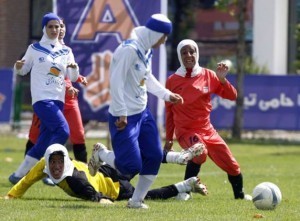Chloe Thurlow's Blog, page 24
November 28, 2013
One Night Stand
A one night stand often stays longer in the memory than a relationship that has lasted for absolutely weeks. You recall ever move, every motion, every nuance, every touch of the stranger’s hand, every flutter of your heart…his damp tongue running down between your breasts, the race of your pulse…the moist feeling between your legs…the slow arch of your back…heels pressing down, down…
 A one night stand is a snapshot stolen from time. It’s like a short story: every word as every gesture counts. Every scene pressing into the next scene must flow like flesh moving across flesh as clothes like wasted words are shed and bodies like subtext are subtly revealed. You are carried by the pace of the action and reach the last word as you reach orgasm, an eruption of feeling and fluids, a fleeting petite mort and the sudden thought that, yes, that was good, that was great, we’ll have to do it again. Turn the page. Start another story.
A one night stand is a snapshot stolen from time. It’s like a short story: every word as every gesture counts. Every scene pressing into the next scene must flow like flesh moving across flesh as clothes like wasted words are shed and bodies like subtext are subtly revealed. You are carried by the pace of the action and reach the last word as you reach orgasm, an eruption of feeling and fluids, a fleeting petite mort and the sudden thought that, yes, that was good, that was great, we’ll have to do it again. Turn the page. Start another story.
A novel is a long relationship. You become your main character and the main character gets into your head and changes your DNA. Writing a novel is the same as having a baby, such a strain. Nine months of gestation and planning, the constant fear that your offspring will fail at school, grow up ugly and hated by the world. Your body changes; if you are pregnant you get fat, if you are writing a novel you get thin. You pull your own hair out and watch lines like cracking ice grow on your face.
You can call it coincidence, but I was thinking about all this because I have just had the most pleasurable one night stand writing a short story I have called Snow Falls Softly, my first new work for ages and probably the most sensual tale I have ever written. It is published in the collection Gratis: Midwinter Tales, an anthology of stories by nine writers celebrated for touching the erotic senses floating in the dark heart of our secret subconscious.
Depending on your desires and fantasies, you can have a one night stand with me, Chloe, or any of my fellow sinners – the divine Elizabeth Woodham; the quietly sybaritic Hedonist Six; the ‘Master’: Jason Jaxx (the double xx says so much); our glamorous ex-supermodel turned erotic scribe KM Dylan; the darkly compelling E.A. Chapterhouse; the ever mysterious Livilla Sanders; our man for all temptations M.J. Carey and my fellow authoress at Xcite Books, the vibrant and ever surprising Kay Jaybee. If you have the stamina, of course, you can have a one night stand with us all.
There are no links, my blog is about writing, erotica and me. But if you fancy a one night stand on nine consecutive nights, then Gratis: Midwinter Tales will warm your blood better than any brandy through the chilly season.
#mc_embed_signup{background:clear; clear:left; font:10px Helvetica,Arial,sans-serif; }
/* Add your own MailChimp form style overrides in your site stylesheet or in this style block.
We recommend moving this block and the preceding CSS link to the HEAD of your HTML file. */
Add Your Name to the Mailing List for occasional Updates - Chloe
* indicates required
Email Address *
'+msg+'
The post One Night Stand appeared first on Chloe Thurlow.
November 26, 2013
Girls Kissing Girls
Kissing is in the news. One in six women in the UK say they have had a lesbian relationship and the number of girls kissing girls has gone up by four times in the last 20 years. Girls start having sex younger, they have more partners, and are more likely to be monogamous when the right guy comes along.
 The revelations in the National Survey of Sexual Attitudes and Lifestyles, published in The Lancet, were met by one observer – me – with a little kiss on the mirror and a sigh of relief. Sex is healthy, an orgasm is like a 10 mile run, and when you’re having sex you’re not eating, drinking, smoking or listening to some boring bloke across the table talking about 1) football; 2) politics; 3) himself; you know the type, good looking at first glance, peers at his reflection in the soup spoon and says after wittering on for an hour, ‘Well, that’s enough about me, what do you think of me?’
The revelations in the National Survey of Sexual Attitudes and Lifestyles, published in The Lancet, were met by one observer – me – with a little kiss on the mirror and a sigh of relief. Sex is healthy, an orgasm is like a 10 mile run, and when you’re having sex you’re not eating, drinking, smoking or listening to some boring bloke across the table talking about 1) football; 2) politics; 3) himself; you know the type, good looking at first glance, peers at his reflection in the soup spoon and says after wittering on for an hour, ‘Well, that’s enough about me, what do you think of me?’
Is that why one in six girls are now kissing girls? And is it really four times as many as 20 years ago? Or are girls just more open about what they do behind the closed door of the bedroom, back seat of the car, the end cubicle in the office loos? Most girls I know, even the most man hungry nymphomaniacs, take an ascetic pleasure in feminine beauty (other than their own) and the sense of sight is only one breath from the sense of touch. All girls like to feel their own breasts and all girls have an innate instinct to feel the breasts of others, to touch lips to lips, flesh to flesh, moist parts to moist parts. It’s normal, it’s innocent, and it’s fun.
The first National Survey in 1990 was initially banned by the then Prime Minister Margaret Thatcher, who believed it was in invasion of privacy. Maybe she was right. But privacy, like honesty (in: banks, politics, advertising, big business) is no longer something we expect. The moral compass has weighed anchor. It bobs along on the tides of social change and girls kissing girls is something they have always wanted to do and are finally doing. Kiss Kiss.
#mc_embed_signup{background:clear; clear:left; font:10px Helvetica,Arial,sans-serif; }
/* Add your own MailChimp form style overrides in your site stylesheet or in this style block.
We recommend moving this block and the preceding CSS link to the HEAD of your HTML file. */
Add Your Name to the Mailing List for occasional Updates - Chloe
* indicates required
Email Address *
'+msg+'
The post Girls Kissing Girls appeared first on Chloe Thurlow.
November 20, 2013
Good Books Are Brain Food
Good books are brain food. It’s true. Reading literary fiction makes you more intelligent. Good books enhance empathy and intuition; they help you to understand the problems of others and to view your own problems with greater clarity.  The ‘discovery’ was made by psychologists David Comer Kidd and Emanuele Castano following research at the New School for Social Research in New York, the results published in Science under the heading: Reading Literary Fiction Improves Theory of Mind.
The ‘discovery’ was made by psychologists David Comer Kidd and Emanuele Castano following research at the New School for Social Research in New York, the results published in Science under the heading: Reading Literary Fiction Improves Theory of Mind.
Kidd and Castano took a group of volunteers, divided them into four groups and gave them different reading tasks. The first group were provided with literary fiction (including Don DeLillo). The second group were each given best-sellers, or popular fiction. The third read non-fiction articles selected from the Smithsonian Magazine. The fourth group didn’t read at all.
After the reading section each individual completed Theory of Mind (ToM) empathy tests designed to show their understanding of the mental states of others. One of these assessments, for example, is the ‘Reading the Mind in the Eyes’ test, where participants look at photographs of actors’ eyes and identify the emotion being expressed. There were four other tests of a similar nature, all of which had been road-tested and found valuable in similar experiments.
The psychologists’ research showed that those who read the literary works performed significantly better than those in the other three groups – regardless of what they read or whether they read nothing at all. Kidd and Castano suggest that the reason for literary fiction’s impact on ToM is due to the ways in which it involves the reader. Unlike popular fiction, literary fiction requires intellectual engagement and creative thought, setting it apart from best-selling thrillers or romances. Literary fiction creates worlds populated with complex, multi-faceted characters whose decision-making processes and inner lives are not easily discerned or understood, but forces the reader’s mind to take wing as they explore the psychology of what drives them. If you can work out what drives those characters, you have a greater understanding of others and yourself.
What is literary fiction? Everyone would have their own list. I write erotica and have found no work more literary than that of Anaïs Nin. I adore Milan Kundera, Ian McEwan, Cormac McCarthy Vladimir Nabokov, the Brontë sisters, Bret Easton Ellis – I could go on and will sign off with something Groucho Marx had to say: ‘I find television very educating. Every time somebody turns on the set, I go into the other room and read a book.’
If I had to guess, I’d say Groucho knew good books are brain food and was reading literary fiction. Who are your favourites? Leave the names in the comment box below.
#mc_embed_signup{background:clear; clear:left; font:10px Helvetica,Arial,sans-serif; }
/* Add your own MailChimp form style overrides in your site stylesheet or in this style block.
We recommend moving this block and the preceding CSS link to the HEAD of your HTML file. */
Add Your Name to the Mailing List for occasional Updates - Chloe
* indicates required
Email Address *
'+msg+'
November 14, 2013
Finally, I Found the G-Spot
What is it with men and bottoms? They can spend hours ogling them on the beach, moving beneath your skirt as you stride down the street, when you bend to retrieve something dropped by chance (or not). Why do we wear tight skirts if we don’t want our bottoms stared at, admired, lusted over? Why, to get to the bottom of the subject, do men like spanking bottoms? And why do women, well, quite a lot of women, not to mention any names, rather enjoy being spanked?
 So many questions. So much research. Pert bottoms are like pert breasts and breast-fed men spend their lives trying to return to the teat and climb back into the womb. They are nurtured by a woman – their mum – and become addicted to the milky bouquet of the female aroma, the mysterious perfumes of the feminine sex. Stone Age man used to beat his woman with a club, an early form of foreplay. Man’s role (he says) is to dominate the female. A good spanking is the contemporary equivalent of these primitive rituals.
So many questions. So much research. Pert bottoms are like pert breasts and breast-fed men spend their lives trying to return to the teat and climb back into the womb. They are nurtured by a woman – their mum – and become addicted to the milky bouquet of the female aroma, the mysterious perfumes of the feminine sex. Stone Age man used to beat his woman with a club, an early form of foreplay. Man’s role (he says) is to dominate the female. A good spanking is the contemporary equivalent of these primitive rituals.
Girls’ bottoms are playful, provocative, round as new planets floating in space and, not to get too medical or evolutionary, the plumpness of a young bum signifies a woman of child-bearing age, the ability to produce the fertile nectar estrogen – or oestrogen; so vital they gave it two spellings instead of one.
I assume the missionary position started with the invention of missionaries. Before then, in jungles and caves, on moon-washed beaches, they almost certainly joined in doggy fashion with its auxiliary benefits: you cede all sense of control, make monkey faces as you howl, revel in deeper penetration and provide your contemporary cave man with two bull’s eyes to aim at rather than one.
Men are programmed to adore bums. It’s a primal compulsion. Practically divine. With their big hands and hairy bodies, what those alpha males subliminally crave is babies so they can brand their progeny with their name and continue the species. Our role, aside from carrying their babies, is to bend over and wiggle.
So why the spanking? And what’s in it for us? Well, quite a lot, actually. The female derriere is situated just a tongue’s length from that unfathomable little Gräfenberg Spot – the G-spot, located, according to Wikipedia, ‘about three inches up the front vaginal wall between the vaginal opening and the urethra’ – more, frankly, than we need to know. Spanking until the bottom glows with a rosy blush sends ribbons of sensation to the G-spot and bathes the erogenous zones in warm rapturous waves. Pain and pleasure are two sides of the same golden coin and in the hands of a good spanker the sting dissolves into bliss and erupts in sheer ecstasy.
Now, for the benefit of further research, do leave a comment below – and if you’d like to add you email address for my (infrequent) updates, you can download the very sexy Flight 69 – for FREE.
#mc_embed_signup{background:clear; clear:left; font:10px Helvetica,Arial,sans-serif; }
/* Add your own MailChimp form style overrides in your site stylesheet or in this style block.
We recommend moving this block and the preceding CSS link to the HEAD of your HTML file. */
Add Your Name to the Mailing List for occasional Updates - Chloe
* indicates required
Email Address *
'+msg+'
November 13, 2013
Absurdly Albert Camus
Albert Camus would have been 100 this week. Born in Algiers of French/Spanish descent in November 1913, he died aged 46 in 1960 after writing five short novels and receiving the Nobel Prize for Literature at  age 44. Before he was 30, Camus had published two influential books: The Myth of Sisyphus, his belief that man’s search for the meaning of life is an absurdity in a world devoid of eternal truths or values; and The Outsider (also known as The Stranger; L’Étranger in French), the celebrated novel that explores this philosophy.
age 44. Before he was 30, Camus had published two influential books: The Myth of Sisyphus, his belief that man’s search for the meaning of life is an absurdity in a world devoid of eternal truths or values; and The Outsider (also known as The Stranger; L’Étranger in French), the celebrated novel that explores this philosophy.
I read The Outsider when I was 15. The book is compulsive, and has that special quality of great novels: it makes you think about the meaning of your own life, its direction and purpose – things I had never thought about before. Set in French Algiers, it is the story of Meursault, a French clerk who kills an Arab on the beach without any apparent motive, and is condemned more for absurd than rational reasons.
Ironically, the death of Camus was likewise touched by the absurd: after buying a train ticket from Paris to his home in the South of France, he decided to join his friend and publisher, Michel Gallimard, who was making the journey by road. It was an icy January day, snow clouding the windscreen. The car skidded against a tree near the village of Villebleven and Camus was pulled from the wreckage with a broken neck.
Less is more when it comes to the written word. Camus when he died was only 46, but had published his unique insight on the human condition, his novels and essays the literary equivalent of Michelangelo’s David. In his work there are no wasted words, no time for prosaic revisions or redactions. Artists, writers, composers have a finite amount of jism, of creative power, and Albert Camus used his to the full. He was born in the winter. He died in the winter and he wrote: In the depth of winter I finally learned that there was in me an invincible summer.
#mc_embed_signup{background:clear; clear:left; font:10px Helvetica,Arial,sans-serif; }
/* Add your own MailChimp form style overrides in your site stylesheet or in this style block.
We recommend moving this block and the preceding CSS link to the HEAD of your HTML file. */
Add Your Name to the Mailing List for occasional Updates - Chloe
* indicates required
Email Address *
'+msg+'
November 9, 2013
Football Under Cover
The other night I went with friends to watch a documentary at a film club in East London. I didn’t know until I arrived that Football Under Cover was about, well, football, and worse: female football. My heart dropped as the lights were lowered. I yawned, clutched a glass of warm white wine and during the next 90 minutes all my cynicism was wrung out of me as my low expectations washed away on a tide of human emotions and superb storytelling.
 We begin with Marlene Assmann, a young German woman with a sweep of straw-coloured hair, strong features and determined, penetrating brown eyes: a woman who gets things done. She is a member of BSV AL-Dersimspor, an amateur Berlin ladies soccer team. When she learns that the female national soccer team in Iran has never played against a foreign club, she sets out to take on the ayatollahs and give the Iranian girls the match of their lives.
We begin with Marlene Assmann, a young German woman with a sweep of straw-coloured hair, strong features and determined, penetrating brown eyes: a woman who gets things done. She is a member of BSV AL-Dersimspor, an amateur Berlin ladies soccer team. When she learns that the female national soccer team in Iran has never played against a foreign club, she sets out to take on the ayatollahs and give the Iranian girls the match of their lives.
When Marlene is unable to get support for the idea in Germany, she flies to Tehran and begins an extensive, intricate journey through the minefield of Iranian politics. It takes weeks to get meetings and, when she sits down with officials over glasses of hot sweet tea, the ayatollahs scratch their beards and swish their robes. They are convinced that Marlene and her German ladies are spies for the American Government. And, even if they are not, there’s the grave issue of public decency. Foreign women running about with bare faces and naked legs? They shudder at the thought.
As directors David Assmann and Ayat Najafi follow Marlene through all the twists and set backs you would expect from a good mystery movie, we observe in the subtext Iranian women in a continual fight against the odds – the Government, fathers, brothers, husbands – to win greater levels of freedom under the severe restrictions of the Islamic Republic, a reminder of the struggle that women have always faced.
Permission for the match is finally granted, but the sense of triumph fades when the Germans are unable to get visas. There are more discussions. The tension grows and then, at the last moment, after the visas have been issued, the German footballers are told that they are not going to be able to play in their usual strips. Like the Iranian girls, they must wear headscarfs and long trousers.
They have gone too far to stop now and agree to the demand. Accompanied by bearded minders, just in case they are American spies, the girls fly into Tehran, only to learn that one of the star Iranian players has been withdrawn from the team, her sudden disappearance never explained but a reminder that, in Iran, it can happen to anyone.
But they are there. The match goes ahead. The German ladies dress in their strange uniforms, run out on to the pitch, line up for the kick off and take part in Iran’s first international football match – in a totally empty stadium. Men are not allowed to watch women play soccer and women are not allowed to go out without the permission of their husbands.
I can’t actually remember the score. Football Under Cover is not about football. It is about common human decency. If you do want to know the score, the film can be found on Amazon.
#mc_embed_signup{background:clear; clear:left; font:10px Helvetica,Arial,sans-serif; }
/* Add your own MailChimp form style overrides in your site stylesheet or in this style block.
We recommend moving this block and the preceding CSS link to the HEAD of your HTML file. */
Add Your Name to the Mailing List for occasional Updates - Chloe
* indicates required
Email Address *
'+msg+'
FOOTBALL UNDER COVER
The other night I went with friends to watch a documentary at a film club in East London. I didn’t know until I arrived that Football Under Cover was about, well, football, and worse: female football. My heart dropped as the lights were lowered. I yawned, clutched a glass of warm white wine and during the next 90 minutes all my cynicism was wrung out of me as my low expectations washed away on a tide of human emotions and superb storytelling.
 We begin with Marlene Assmann, a young German woman with a sweep of straw-coloured hair, strong features and determined, penetrating brown eyes: a woman who gets things done. She is a member of BSV AL-Dersimspor, an amateur Berlin ladies soccer team. When she learns that the female national soccer team in Iran has never played against a foreign club, she sets out to take on the ayatollahs and give the Iranian girls the match of their lives.
We begin with Marlene Assmann, a young German woman with a sweep of straw-coloured hair, strong features and determined, penetrating brown eyes: a woman who gets things done. She is a member of BSV AL-Dersimspor, an amateur Berlin ladies soccer team. When she learns that the female national soccer team in Iran has never played against a foreign club, she sets out to take on the ayatollahs and give the Iranian girls the match of their lives.
When Marlene is unable to get support for the idea in Germany, she flies to Tehran and begins an extensive, intricate journey through the minefield of Iranian politics. It takes weeks to get meetings and, when she sits down with officials over glasses of hot sweet tea, the ayatollahs scratch their beards and swish their robes. They are convinced that Marlene and her German ladies are spies for the American Government. And, even if they are not, there’s the grave issue of public decency. Foreign women running about with bare faces and naked legs? They shudder at the thought.
As directors David Assmann and Ayat Najafi follow Marlene through all the twists and set backs you would expect from a good mystery movie, we observe in the subtext Iranian women in a continual fight against the odds – the Government, fathers, brothers, husbands – to win greater levels of freedom under the severe restrictions of the Islamic Republic, a reminder of the struggle that women have always faced.
Permission for the match is finally granted, but the sense of triumph fades when the Germans are unable to get visas. There are more discussions. The tension grows and then, at the last moment, after the visas have been issued, the German footballers are told that they are not going to be able to play in their usual strips. Like the Iranian girls, they must wear headscarfs and long trousers.
They have gone too far to stop now and agree to the demand. Accompanied by bearded minders, just in case they are American spies, the girls fly into Tehran, only to learn that one of the star Iranian players has been withdrawn from the team, her sudden disappearance never explained but a reminder that, in Iran, it can happen to anyone.
But they are there. The match goes ahead. The German ladies dress in their strange uniforms, run out on to the pitch, line up for the kick off and take part in Iran’s first international football match – in a totally empty stadium. Men are not allowed to watch women play soccer and women are not allowed to go out without the permission of their husbands.
I can’t actually remember the score. Football Under Cover is not about football. It is about common human decency. If you do want to know the score, the film can be found on Amazon.
#mc_embed_signup{background:clear; clear:left; font:10px Helvetica,Arial,sans-serif; }
/* Add your own MailChimp form style overrides in your site stylesheet or in this style block.
We recommend moving this block and the preceding CSS link to the HEAD of your HTML file. */
Add Your Name to the Mailing List for occasional Updates - Chloe
* indicates required
Email Address *
'+msg+'
November 6, 2013
Spare Time
At the end of a recent interview, Kay Jaybee asked me what I did when I wasn’t writing. ‘You know, hobbies. What you do in your spare time?’  I had to stop for a moment and think. What do I do? When am not writing, I am thinking about what I have written and what I am going to write. Spare time is like spare change. A concept. A mirage. Writing is a splinter you can’t get out from under your fingernail, all-consuming, an addiction. It’s not a calling or an art, even a craft. It is a disease, an infirmity, the monkey on your back, the burden you bear up the mountainside like Christian in Pilgrim’s Progress.
I had to stop for a moment and think. What do I do? When am not writing, I am thinking about what I have written and what I am going to write. Spare time is like spare change. A concept. A mirage. Writing is a splinter you can’t get out from under your fingernail, all-consuming, an addiction. It’s not a calling or an art, even a craft. It is a disease, an infirmity, the monkey on your back, the burden you bear up the mountainside like Christian in Pilgrim’s Progress.
I like to dance and while I am dancing the rhythm brings complete sentences to me in elegiac compositions. I enjoy lunch with friends and I steal their stories, memorize their dialogue. Swimming is my passion, the water sliding over my skin, and while I swim I am planning, plotting, adjusting.
In the novel I am writing, I have a scene where two couples have lunch in the countryside. Katie is in awe of the accomplished Tamsin, who has made an apple pie with apples grown on the farm where she lives. The scene was written, but lacked bite, torque, authenticity. I needed to get the two girls together for a tête-à-tête and find a reason why the men go off and leave them on their own. What I did was insert a single line about driving past the orchard where the apples grew and a two lines about a missing cat. The tweaks in the rewrite gave the apple pie with cloves more flavour and the two men going off in search of the cat provided both logic and tension, the oil of fiction. I had been aware on a subconscious level that I needed to make revisions and they surfaced in my mind as I slipped up and down the length of the pool.
At night, if alone, I go to bed with a book and fall asleep over the pages. My dreams are vivid and often I wake in the silvery starlight, glance from my window and see in the glass-walled City banks the reflections of words that I grab from the air like falling songbirds and pin to the page. What do I do in my spare time? I dance, I swim, I chat, I argue with Mother and write blogs to explain myself to myself.
#mc_embed_signup{background:clear; clear:left; font:10px Helvetica,Arial,sans-serif; }
/* Add your own MailChimp form style overrides in your site stylesheet or in this style block.
We recommend moving this block and the preceding CSS link to the HEAD of your HTML file. */
Add Your Name to the Mailing List for occasional Updates - Chloe
* indicates required
Email Address *
'+msg+'
SPARE TIME
At the end of a recent interview, Kay Jaybee asked me what I did when I wasn’t writing. ‘You know, hobbies. What you do in your spare time?’  I had to stop for a moment and think. What do I do? When am not writing, I am thinking about what I have written and what I am going to write. Spare time is like spare change. A concept. A mirage. Writing is a splinter you can’t get out from under your fingernail, all-consuming, an addiction. It’s not a calling or an art, even a craft. It is a disease, an infirmity, the monkey on your back, the burden you bear up the mountainside like Christian in Pilgrim’s Progress.
I had to stop for a moment and think. What do I do? When am not writing, I am thinking about what I have written and what I am going to write. Spare time is like spare change. A concept. A mirage. Writing is a splinter you can’t get out from under your fingernail, all-consuming, an addiction. It’s not a calling or an art, even a craft. It is a disease, an infirmity, the monkey on your back, the burden you bear up the mountainside like Christian in Pilgrim’s Progress.
I like to dance and while I am dancing the rhythm brings complete sentences to me in elegiac compositions. I enjoy lunch with friends and I steal their stories, memorize their dialogue. Swimming is my passion, the water sliding over my skin, and while I swim I am planning, plotting, adjusting.
In the novel I am writing, I have a scene where two couples have lunch in the countryside. Katie is in awe of the accomplished Tamsin, who has made an apple pie with apples grown on the farm where she lives. The scene was written, but lacked bite, torque, authenticity. I needed to get the two girls together for a tête-à-tête and find a reason why the men go off and leave them on their own. What I did was insert a single line about driving past the orchard where the apples grew and a two lines about a missing cat. The tweaks in the rewrite gave the apple pie with cloves more flavour and the two men going off in search of the cat provided both logic and tension, the oil of fiction. I had been aware on a subconscious level that I needed to make revisions and they surfaced in my mind as I slipped up and down the length of the pool.
At night, if alone, I go to bed with a book and fall asleep over the pages. My dreams are vivid and often I wake in the silvery starlight, glance from my window and see in the glass-walled City banks the reflections of words that I grab from the air like falling songbirds and pin to the page. What do I do in my spare time? I dance, I swim, I chat, I argue with Mother and write blogs to explain myself to myself.
#mc_embed_signup{background:clear; clear:left; font:10px Helvetica,Arial,sans-serif; }
/* Add your own MailChimp form style overrides in your site stylesheet or in this style block.
We recommend moving this block and the preceding CSS link to the HEAD of your HTML file. */
Add Your Name to the Mailing List for occasional Updates - Chloe
* indicates required
Email Address *
'+msg+'
November 2, 2013
Screenwriters: A Dime A Dozen
It’s not a good time to be a screenwriter. They are the bottom man on the totem pole just below the runner, the script girl, the catering assistant. Screenwriters have been forced to write in handcuffs, in blindfolds. They’re not writing, they’re typing, filling in blanks, painting by numbers.
 Next time you watch a movie on DVD, look at the time clock. The first major turning point (when the child dies, the man proposes marriage, the bank goes bankrupt) will be on the 27th minute. Check it. It almost never varies. This is part of an embedded formula; a commandment.
Next time you watch a movie on DVD, look at the time clock. The first major turning point (when the child dies, the man proposes marriage, the bank goes bankrupt) will be on the 27th minute. Check it. It almost never varies. This is part of an embedded formula; a commandment.
Another rule is that if you are writing a 100 minute film your script will be 100 pages long, a minute of screen time per page (length equaling cost). With this blueprint, screenwriters are strapped into a straightjacket.
Writing by the page is like writing by the clock, all very well for filling cans of beans, but far from conducive for fanning the creative flame which, in turn, accounts for the fact that for one in every two movies that I see, I sit there thinking to myself: if the producer/director/writer had sent me this script for 24 hours I could have smoothed over the clunky dialogue and added a fresh splash of zing to the weary formula. And I’m not a scriptwriter.
Does it have to be like this? It didn’t used to be. After screening the first talkie, Jazz Singer, in 1927, the moguls realized the talkies were here to stay and put out a call for writers. Playwrights and authors (including F Scott-Fitzgerald) raced out to Los Angeles to start a new life; often forty to a room on the side of the lot, but that’s another story. There were no books on how to write movies, no guides, no paradigms. They made it up as they went along and invented a new art form.
The first screenplays were often 400-500 pages long. Writers accustomed to setting scenes in narrative and for the stage did just that, describing backgrounds, decor, atmosphere, whether the scene was tense or frothy, funny or fraught. In notes with the dialogue, they would say why characters were saying what they were saying and what exactly it signified (the subtext); whether they were being ironic, sarcastic, deadly serious.
When Mae West says: Why don’t you come up and see me some time? What does it mean? Is it an invitation for amour, or a shrug off, some time meaning never? The writer would provide the answer, giving the actress and director clear, vivid information. Was the scene flooded with light or shadowy? Are the curtains blowing? Or is it as still as the tomb? Is the decor minimal, Regency, impoverished? The writer knew what was wanted. It was in his head and he put it down on paper.
Thirty years went by and the French Nouvelle Vague washed across the oceans and on this brave New Wave, cinema became more edgy, iconoclastic, political. French directors, with the influential movie magazine Cahiers du cinéma like a manifesto, had a message, an ideology. Jean-Luc Godard, François Truffaut, Claude Chabrol, André Bazin et al didn’t consider themselves technicians. They were philosophers, existentialists, surrealists – auteurs. The writer, unless they were also the writer, which was usually the case, took a seat at the back of the bus and that is where screenwriters have remained ever since. Like baking scones, they mix the ingredients according to the recipe, make sure the first major turning point occurs on page 27, and the director is the master chef who places the ennobling A Film by… at the top of the credits.
Are the films today great? Some are. Most aren’t. The French New Wave directors broke the old paradigms as if it were a precious vase. You can’t put the pieces back together again, but it is time to smash the new wave vase they made and put the writer back up front in the driving seat.
My sudden interest in screenplays was piqued by a London-based producer who has seen the book trailer for Girl Trade and begun ‘talks’ about acquiring an option to turn the novel into a movie. He suggested I give him a free option. I insisted that, as a writer, I must be paid something. And, while the negotiation is ‘ongoing,’ I asked what his plans were for creating a script.
‘That’s not a problem,’ he said. ‘Screenwriter are a dime a dozen. They work for peanuts.’
In the meantime, relax with Lorraine Masterson’s sweet film – http://youtu.be/EicOBrLvv8U
#mc_embed_signup{background:clear; clear:left; font:10px Helvetica,Arial,sans-serif; }
/* Add your own MailChimp form style overrides in your site stylesheet or in this style block.
We recommend moving this block and the preceding CSS link to the HEAD of your HTML file. */
Add Your Name to the Mailing List for occasional Updates - Chloe
* indicates required
Email Address *
'+msg+'



